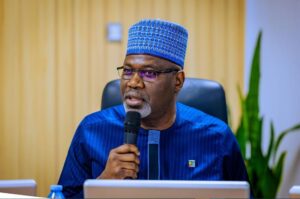
Now in its 10th year, the prestigious Tusk Conservation Awards (www.Tusk.org), in partnership with Ninety One, raise the profile of conservation leaders and their significant impact on wildlife and communities across Africa.
Launched in 2013, this year’s celebrations will be bigger than ever. Hosting the evening at Hampton Court Palace will be a broadcaster and Tusk Ambassador Kate Silverton. Through the recognition of and support for recipients, the Conservation Awards amplify the extraordinary achievements of conservation leaders.
The awards’ 10th year comes at a critical time for conservation. Major upcoming global biodiversity summits – including the CITES conference in Panama in November and the UN Biodiversity Conference in Canada in December – will see the future of Africa’s wildlife and protected spaces take centre stage.
Tusk is uniquely positioned to bring together African conservation leaders with the influence, passion and expertise to implement the plans forged at these summits. The Tusk Award for Conservation in Africa celebrates these individuals and their potential to tackle the greatest threats to the continent’s biodiversity.
Announcing the shortlist for the 2022 Tusk Award for Conservation in Africa, Charlie Mayhew, CEO of Tusk said: “The threat to Africa’s wildlife and wider biodiversity remains real and urgent. With the devastating economic impact of COVID-19 still being felt across Africa, this year’s finalists for the Tusk Award provide a beacon of hope as the continent’s emerging leaders in conservation, working tirelessly on the front line to protect Africa’s extraordinary natural heritage. To mark the 10th year of these prestigious awards, we are excited to use the opportunity to bring together previous awards alumni with this year’s finalists.”
The shortlist for the prestigious Tusk Award for Conservation in Africa, presented in partnership with Land Rover includes:
Finalist David Daballen, Samburu Operations Director at Save The Elephants (Kenya) said:
David is an ambassador and warrior for elephants. During the past 20 years, he’s been involved in more than 100 collaring operations and can identify 500 individuals.
Described by distinguished National Geographic writer, David Quammen as ‘a high school leaver with a PhD mind’, David has a deep understanding of ecology and animal behaviour. This comes both from his Samburu culture and from his regular work alongside top international scientists. He never fails to inspire with his enthusiasm, knowledge and high personal standards. He combines the challenges of running a research programme in the field with successfully negotiating the complicated politics of northern Kenya.
“We have to carry the mantle to the next generation. What really gives me hope is there are so many vibrant Kenyans interested in conservation coming up behind me. That is my driving force and my strength.” – David Daballen
- Dismas Partalala Ole Meitaya: Ujamaa Community Resource Team (UCRT) and Programme Co-ordinator – Yaeda & Lake Eyasi – Tanzania
Dismas, a Maasai from the Loliondo district, is a true grassroots conservationist – someone whose first priority is helping indigenous communities secure their rights over their lands and natural resources, define conservation from their cultural perspective, and build a durable system of land and wildlife protection on that foundation.
In his role as a programme coordinator for Ujamaa Community Resource Team, the 48-year-old self-taught conservationist has been instrumental in securing land rights for the local Hadzabe community, with 100,500 hectares of land secured by law since 2011.
“When I discovered these communities needed help, I knew I had to be the one. If I do this, then I can I die knowing I did something in this world.” – Dismas Partalala
- Miguel Goncalves: Park Warden – National Administration for Conservation Areas, Mozambique
Miguel has worked within the Maputo National Park since 1999, becoming Park Warden in 2008. Under Miguel’s inspirational leadership across the last 12 years, the park has changed dramatically from a free-for-all hunting ground to a landscape able to support thriving populations of wildlife and recovering ecosystems, both in the ocean and on land. His drive and passion, combined with a deep knowledge of his local area, have enabled him to become a leader and advocate for community conservation and education across borders and cultures.
“I believe in the work that I do passionately. I can see the difference the team has made over the last 12 years and the impact we have had on the surrounding communities, who are our foremost partners in the landscape.” – Miguel Goncalves
Hendrik du Toit, Founder and Chief Executive, Ninety One, said: “Congratulations to the nominees on their outstanding achievements. We honour their commitment to conserving and protecting Africa’s wildlife. Tusk provides enormous support to conservation across the continent. It’s been our privilege to partner with the Tusk Conservation Awards for the past 10 years.”
Laura Wood, Head of Global PR Brand & Partnerships, Jaguar Land Rover said: “Land Rover is proud to support the prestigious Tusk Conservation Awards, now in its tenth year. For over two decades Land Rover and Tusk have worked in partnership to support vital conservation work across Africa. From the supply of vehicles to the sharing of technology, we are committed to supporting Tusk in their mission to protect endangered species, safeguard biodiversity and empower local communities.”
The winner of The Tusk Award for Conservation in Africa award will be announced at the ceremony, alongside the presentation of the annual Prince William Award for Conservation, sponsored by Ninety One and the Tusk Wildlife Ranger Award, sponsored by the Nick Maughan Foundation.
The Tusk Conservation Awards are made possible thanks to the continued generosity and support of co-sponsors: ISPS Handa, DHL, Maia & Fortemus Films, Mantis Group, Patrick Mavros, EJF Philanthropies, Justerini & Brooks, Accor and Shelton Fleming.






